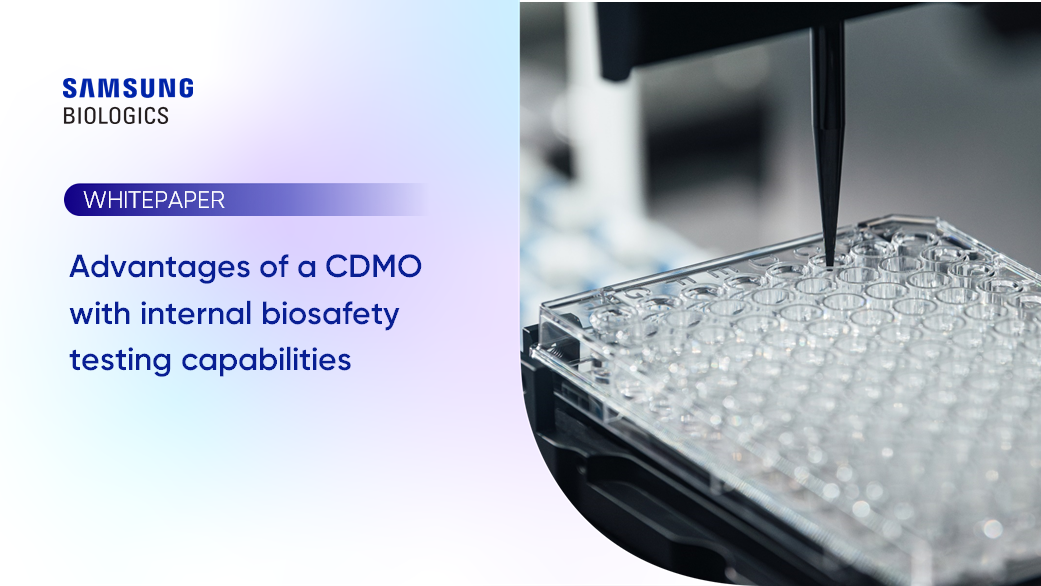
Biosafety testing is crucial in the CDMO industry to ensure safe, high-quality biopharmaceutical products. These testing services help detect potential viral or mycoplasma contaminants that could be present in the manufacturing process, cell bank, or raw materials.
Early detection of viruses and mycoplasma prevents cross-contamination, protects the facility and the cell bank, and safeguards product integrity. Accordingly, regulatory agencies require comprehensive virus and mycoplasma monitoring as part of lot release testing.
Cell bank manufacturing and biosafety testing
Companies commonly apply three types of biosafety testing: in vitro adventitious virus (IVV), species-specific virus testing such as minute virus of mice (MVM), and mycoplasma. These tests are initially conducted as part of various biosafety assessments during qualification of the master cell bank and working cell bank during the production phase, using unprocessed bulk (UPB) samples on the final day of the culture. Through these testing procedures, companies can minimize contamination risks within the facility.
Samsung Biologics carefully manages its personnel to ensure stringent quality control throughout all biosafety testing services, drawing upon our extensive experience and expertise. In accordance with virus testing requirements, our laboratory facility is in a separate location within the Samsung Biologics campus, with strictly controlled access. However, the lab’s proximity, coupled with our operational excellence, ensures that our in-house experts can quickly respond should a problem ever arise.

Biosafety testing is crucial in the CDMO industry to ensure safe, high-quality biopharmaceutical products. These testing services help detect potential viral or mycoplasma contaminants that could be present in the manufacturing process, cell bank, or raw materials.
Early detection of viruses and mycoplasma prevents cross-contamination, protects the facility and the cell bank, and safeguards product integrity. Accordingly, regulatory agencies require comprehensive virus and mycoplasma monitoring as part of lot release testing.
Cell bank manufacturing and biosafety testing
Companies commonly apply three types of biosafety testing: in vitro adventitious virus (IVV), species-specific virus testing such as minute virus of mice (MVM), and mycoplasma. These tests are initially conducted as part of various biosafety assessments during qualification of the master cell bank and working cell bank during the production phase, using unprocessed bulk (UPB) samples on the final day of the culture. Through these testing procedures, companies can minimize contamination risks within the facility.
Samsung Biologics carefully manages its personnel to ensure stringent quality control throughout all biosafety testing services, drawing upon our extensive experience and expertise. In accordance with virus testing requirements, our laboratory facility is in a separate location within the Samsung Biologics campus, with strictly controlled access. However, the lab’s proximity, coupled with our operational excellence, ensures that our in-house experts can quickly respond should a problem ever arise.
Related Content